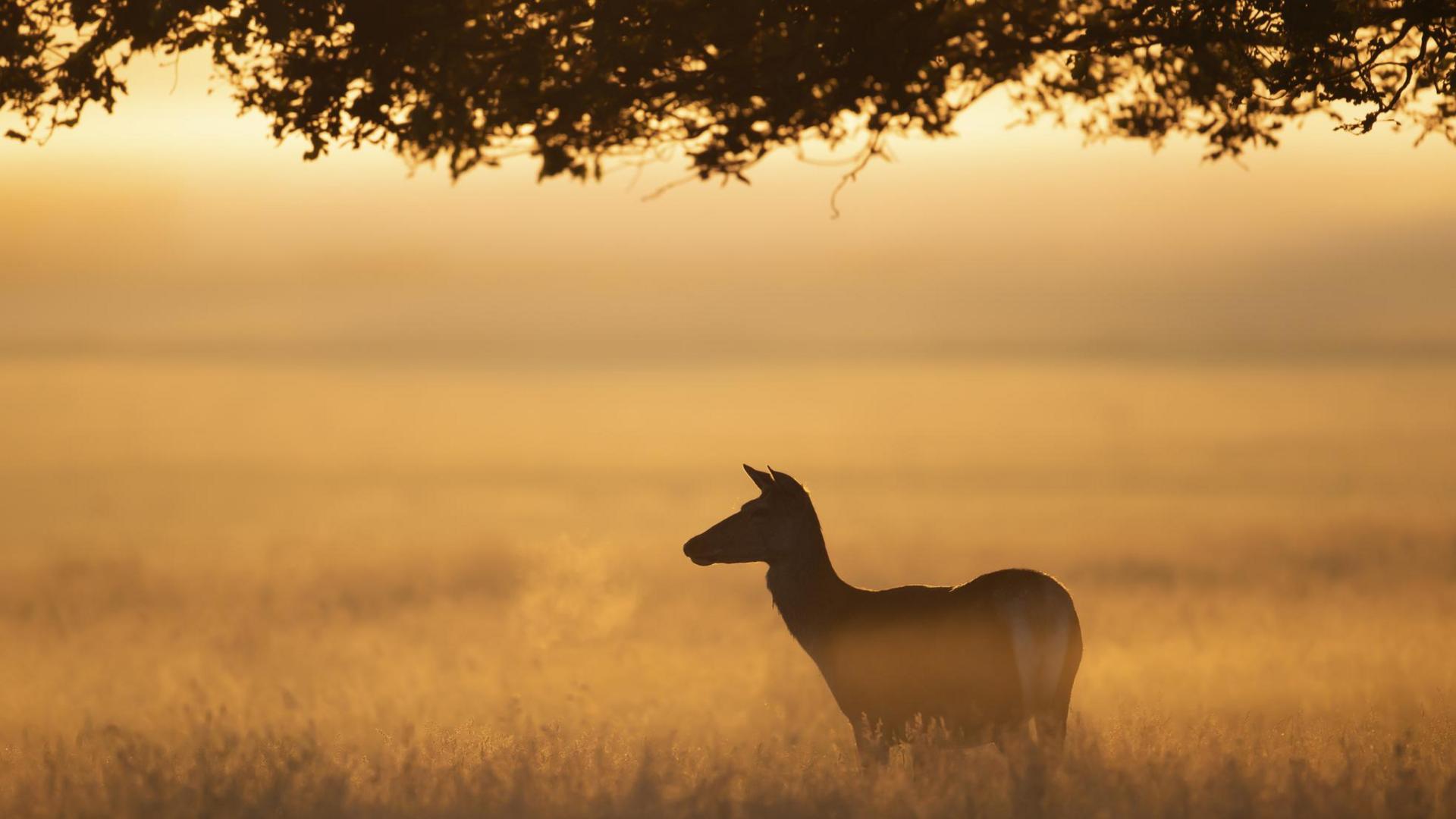Gamekeepers criticise cull of female deer

- Published
An out-of-season cull of female deer in Scotland has been criticised by the Scottish Gamekeepers Association (SGA).
Public agency Forestry and Land Scotland (FLS) plans to have hinds shot to control deer numbers, and to protect young trees from damage caused by the animals' grazing.
SGA said a similar cull last year involved 1,300 deer, which it described as "unjustified" and left calves at risk of starvation.
FLS has said the cull was licensed and would help protect woodland that was being regenerated as a response to the "climate change emergency".
The deer shooting season for female deer runs from late October to February.
FLS said culling out-of-season in September was widely practised by land managers and was licensed by public body NatureScot, adding that it had only nine of the 130 September licences granted last year.
FLS said deer numbers across Scotland had doubled to almost a million from 500,000 in 1990, and culls were necessary to control numbers in the interests of forestry and also the health of deer populations.
It also said Scotland's Independent Deer Working Group had recently called for "proactive deer management".
SGA said gamekeepers were angry at the "disrespect" being shown to deer seasons, and claimed last year's cull had been "mis-directed" to open hill areas without trees.
The organisation has threatened to withdraw from the Wild Deer Best Practice scheme in protest.
Chairman Alex Hogg said: βWe are proud of our five years of work in developing best practice in Scotland. These guidelines need to evolve and we appreciate that.
βBut our members are questioning why our name should be on future codes when the direction of travel, within public bodies, appears to be to kill deer, day or night, in-season or not."
FLS said: βSGA members and others employed by FLS to undertake this deer cull are registered as fit and competent on the National register of deer controllers.Μύ
βAs responsible land managers we would be amongst the first to encourage anyone with any evidence of best practice not being followed to report this to deer management regulator, NatureScot.β
Μύ